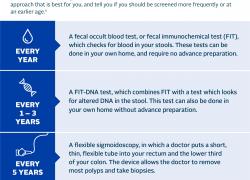Each year, approximately 30,000 cases of Lyme disease are reported to the CDC by state health departments, but this number doesn't reflect all diagnosed cases of Lyme disease. Recent estimates suggest that approximately 300,000 people may get Lyme disease each year in the United States.
New data reported by the CDC in 2018 showed that state and local health departments reported more cases of tick-borne diseases in 2017 than ever before, including Lyme disease. While the uptick in ticks remains unclear, a number of factors can affect tick populations, including temperature, rainfall, humidity, and most certainly, host populations, like deer.
Although ticks can thrive just about anywhere in suburbia, it's common that they prefer wooded areas, gardens, plantings, and tall backyard grasses. One reason ticks continue to flourish is their propensity to hang out on shrubs, trees, and in tall grass waiting for unsuspecting hosts- like your dog or deer- to wander by so they can latch on and hitch a ride to your backyard.
We know that deer have made themselves at home in suburbia and most of us have seen more than our share of deer right outside our windows. When you see deer outside, its probable ticks hitched a ride and will stay behind when the deer move on. Ticks need a host to survive and they find a prefect host when attaching to your dog, cat, or any human in close proximity.
Avoiding the outdoors during warm weather isn't an option so prevention and protection is paramount when it comes to dodging ticks and defending yourself against tick-borne illness.
It stands to reason and statistic show, deer are carrying ticks to your backyard. Your best and most logical defense is to discourage deer from roaming onto your property in the first place.
One of the most reliable and logical ways to keep ticks out of your yard is to keep the deer away.
There's a number of strategies to keep deer at bay, including physical barriers like fencing, but fencing can be unsightly and deer can jump two feet higher than allowable suburban fence height restrictions of six feet. Planting deer resistant varieties like marigolds, foxgloves boxwood and rosemary could help, but when food supply is low, deer will eat just about anything. Motion deterrents positioned near your garden can scare deer off, however, you'll have to continually reposition them since deer will become acclimated to them and won't be scared away.
Back to logic. We know deer rely heavily on their sense of taste for feeding and smell to alert them to predators. Using a scent aversion, fear-based repellent, like Bobbex Deer, is often considered the most effective, practical, and easy way to keep deer out of your yard, and turn the tide on ticks, keeping them out too. Repellents make good sense.
There's quite a few repellents to choose from but Bobbex Deer works. It's third party verified through testing by the Connecticut Department of Forestry and Horticulture. Bobbex trumped nine other repellents products, was cited number one in comparison testing, and second in effectiveness only to a fence barrier.
Bobbex Deer Repellent combines scent and taste deterrents. The all-natural repellent blends six scents, including rotten eggs, garlic, clove oil (among other things) to mimic predator scents, classifying it as an effective fear repellent. It also tastes terrible to deer, but is actually good for plants because it contains trace nutrients including nitrogen and phosphorus. The product dries clear, is harmless to humans and pets, won't burn plants and its odor, after 24 hours, is undetectable to humans, but deer are still repelled by it. Bobbex is safe for use on the most sensitive plants and can be used on shrubs, trees or as a bulb dip.
The takeaway? Ticks are on the rise and deer populations are high just about everywhere. The dual key to combat both deer in your yard and hitchhiking ticks is proactive protection, using a verified, tested, and effective repellent. Don't forget ticks can be active year-round and Bobbex Deer is designed for year-round use.
For more information about Bobbex Deer, visit www.bobbex.com.




